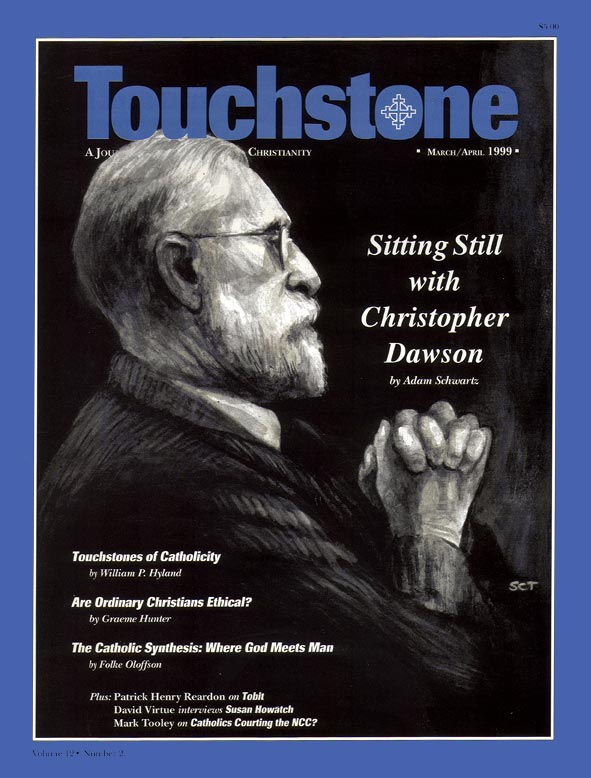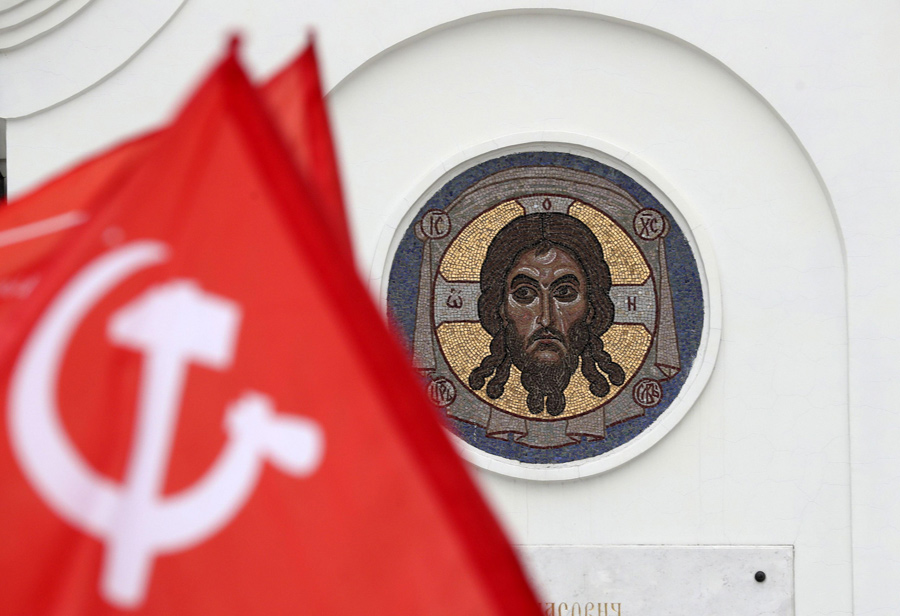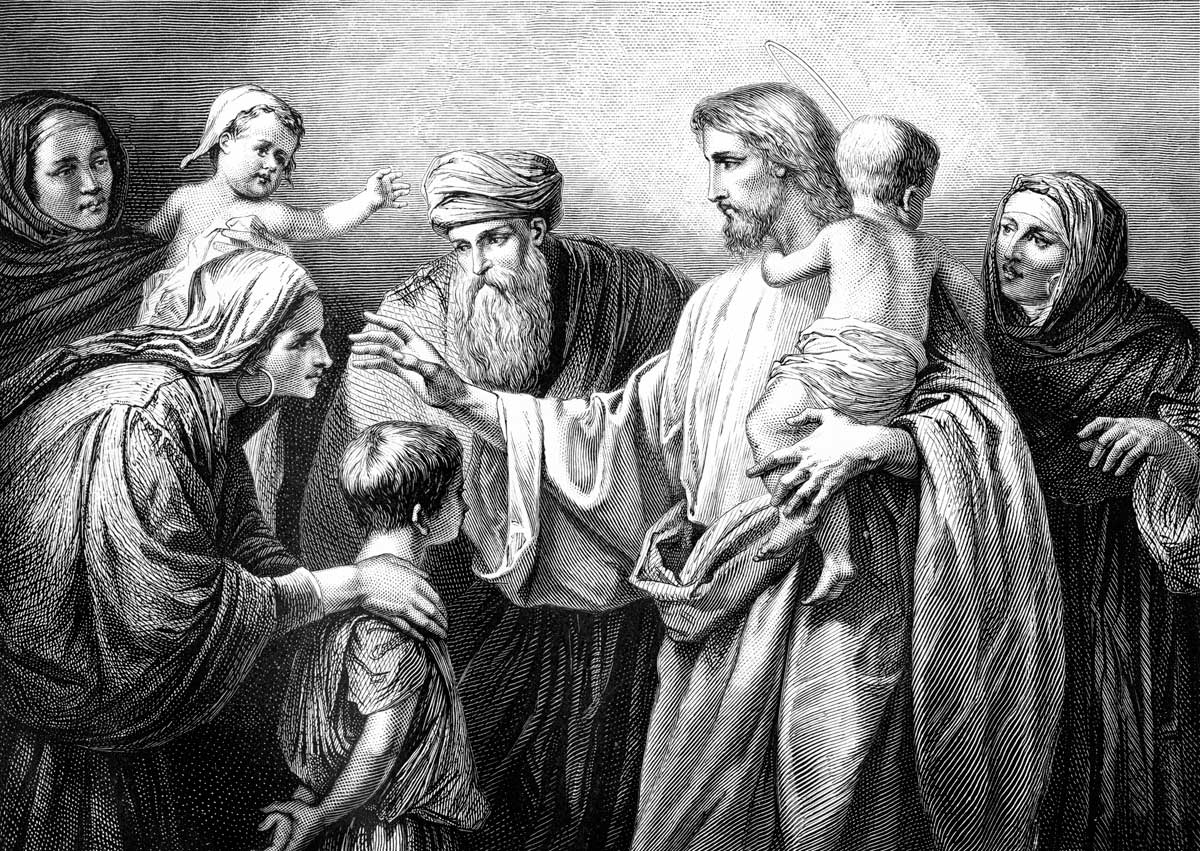The Wide World of Tobit
The Apocrypha’s Tobit & Literary Tradition
by Patrick Henry Reardon
Tobit is a short book. Indeed, Jerome tells us that translating it into Latin cost him only “the labor of one day.”1 It should be remarked, however, that this small book belongs in a big world, with a rich and very wide cultural setting.
I like to think of the Book of Tobit as a kind of universal essay, in the sense that its author makes considerable effort to place his brief, rather simple narrative within a literary, historical, and moral universe of surprising breadth and diversity, extending through the Fertile Crescent and out both sides. To find comparable dimensions of such large cultural exposure among biblical authors, one would have to go to Ezekiel, Luke, or the narrator of Job.
It is the intention of the present article to indicate and outline several aspects of the Book of Tobit that join the work to other streams of literary history. These aspects, which include a fairly wide range of themes, images, and historical references, will serve to link Tobit to three bodies of literature in particular: the Bible; the larger world of Near and Middle Eastern religious philosophy, history, and literature; and the tradition of Christian exegesis down through the Latin Middle Ages.
Tobit & the Bible
The world of Tobit is, first of all, the world of biblical literature and history. Not only does the book provide an elaborate description of the religious deterioration of the Northern Kingdom in the eighth century, and then the deportation and consequent social conditions2 of those tribes after 722, but it explicitly quotes a prophet of that century, Amos, and makes reference (14:4) to the preaching of Jonah at Nineveh.3 Tobit thus presupposes the history narrated in Kings, Chronicles, and the eighth-century prophets.
Tobit’s explicit reference to Jonah is of considerable interest in the light of certain affinities between the two books. First and second, both stories take place about the same time (the eighth century) and both in Mesopotamia. Third, both accounts involve a journey. Fourth, the distressed Tobit, like Jonah, prays to die. Fifth and most strikingly, his son Tobias encounters a fish that attempts—with less success than Jonah’s fish—to swallow him! Finally, in each book the fish serves as a special instrument of Divine Providence.
Besides Jonah, Tobit shows several remarkable affinities to the Book of Job, some of which were noted rather early in Christian exegesis. For example, the title characters of both works shared a zeal for purity of life, almsgiving, and other deeds of charity (Job 1 and 31; Tobit 1–2), patient endurance of trials sent by God,4 a deep weariness of life itself (Job 7:15; Tobit 3:6), a final vindication by the Lord at the end of each book, and perhaps even a common hope of the resurrection.5 As early as Cyprian in the third century, it was also noted that both men were similarly mocked by wives unable to appreciate their virtue and faith in God.6
Moreover, the book’s description of long-suffering Sarah, whose seven husbands all died on their wedding night, carries on another major theme of Holy Scripture: the barren woman, of which the elder Sarah, Rebecca, Rachel, Hannah, and Elizabeth are better known examples. Indeed, the mockery that the younger Sarah receives from her maids in this regard readily puts one in mind of Hagar’s attitude toward the older Sarah, as well as Peninnah’s unkind treatment of Hannah at the beginning of First Samuel.7
The moral teaching of Tobit is also of a piece with the covenantal ethics of the Bible generally. For example, its prohibition against marrying outsiders in 4:12f. reflects the strict view of Ezra and Nehemiah (and, down the road, 1 Corinthians 7).8 Then, in the very next verse is found the mandate about prompt payment of the laborer’s salary, which is clearly based on Leviticus 19:13 and Deuteronomy 24:14f. And so forth. The moral teaching of Tobit shows endless parallels with both the Torah and Israel’s Wisdom tradition, and its solicitude for social justice and service is at one with the teaching of the eighth-century prophets. No matter what is to be said relative to its canonical status, the setting, imagery, and moral doctrine of Tobit is of a piece with the rest of our biblical literature.
Patrick Henry Reardon is pastor emeritus of All Saints Antiochian Orthodox Church in Chicago, Illinois, and the author of numerous books, including, most recently, Out of Step with God: Orthodox Christian Reflections on the Book of Numbers (Ancient Faith Publishing, 2019).
subscription options
Order
Print/Online Subscription

Get six issues (one year) of Touchstone PLUS full online access including pdf downloads for only $39.95. That's only $3.34 per month!
Order
Online Only
Subscription

Get a one-year full-access subscription to the Touchstone online archives for only $19.95. That's only $1.66 per month!
bulk subscriptions
Order Touchstone subscriptions in bulk and save $10 per sub! Each subscription includes 6 issues of Touchstone plus full online access to touchstonemag.com—including archives, videos, and pdf downloads of recent issues for only $29.95 each! Great for churches or study groups.
Transactions will be processed on a secure server.
more from the online archives
calling all readers
Please Donate
"There are magazines worth reading but few worth saving . . . Touchstone is just such a magazine."
—Alice von Hildebrand
"Here we do not concede one square millimeter of territory to falsehood, folly, contemporary sentimentality, or fashion. We speak the truth, and let God be our judge. . . . Touchstone is the one committedly Christian conservative journal."
—Anthony Esolen, Touchstone senior editor









